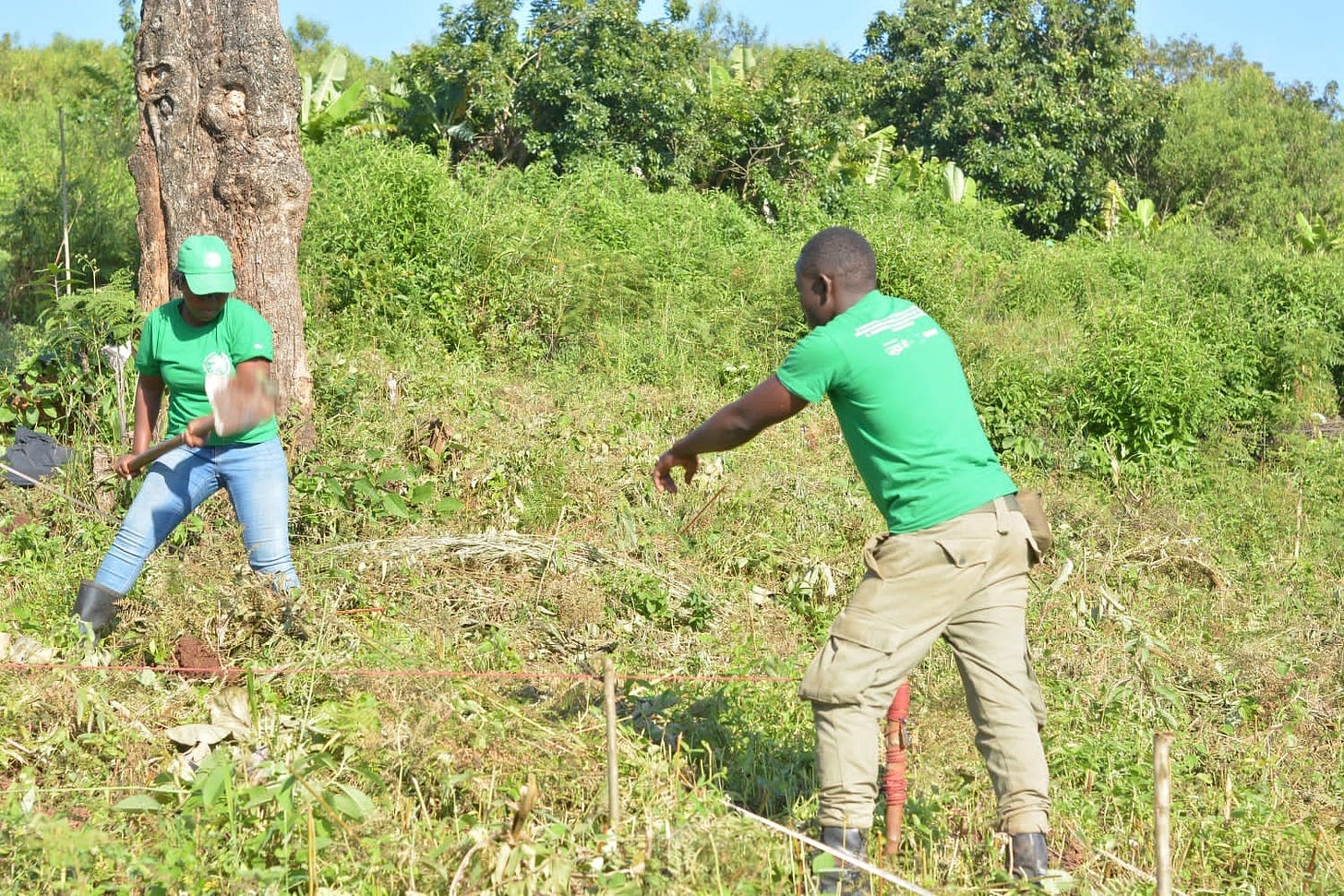Reforestation in Mozambique's Chimanimani Park benefits environment, economy
FNDS launches reforestation project in Chimanimani National Park to combat illegal mining, deforestation.

Manica Province, Mozambique - In a bid to combat illegal mining and deforestation, the Fundo Nacional de Desenvolvimento Sustentavel (FNDS), a non-governmental organisation, has launched a successful reforestation project in the buffer zone of Chimanimani National Park, writes Naome Chisala.
The Moribane Campaign, the first initiative under the project, commenced in February 2023, focusing on the Moribane area within the buffer zone.
Fidel Semba, a government advisor and tour operator involved in the project, explained, "Our aim was to introduce reforestation in that area, so we mobilised secondary and university students to join the reforestation project by educating them about the benefits of reforestation, preserving the environment, and why planting trees helps curb the effects of climate change."
Since the inception of the campaign, farmers and local communities have shifted from deforestation to engaging in syntropic agriculture, planting crops such as coffee, maize, beans, and bananas.
A total of 275 farmers have directly benefited from the reforestation campaigns.
Secondary and university students actively participate in the reforestation project, venturing into the park during school holidays.
Apart from environmental education, these students assist farmers and locals in planting trees and various crops.
The coffee grown by the farmers and locals is sold to Café de Manica and Agrotur, generating profits that directly benefit the community.
The quality of coffee is monitored and assessed by the investigative company, IIAM, before being purchased.
The reforestation project has brought significant positive changes to the local communities and farmers. Judite Mungare, a farmer residing in the park, shared her experience, stating, "But now we grow maize, cassava, pineapples, coffee, and other crops, so we don't depend on one source of income."
Alberto Sembezea, a local traditional leader from the Tsetsera community, expressed his gratitude, "Since the project began, people are no longer cutting down trees and are now planting trees and different types of crops such as maize, beans, fruit trees, soya, and coffee."
He emphasised the uniqueness of coffee grown in a forested area, where photosynthesis enhances its growth.
Despite the successes, the reforestation project faces some challenges. Limited time during school holidays hinders efforts to educate more farmers and locals about the benefits of reforestation.
Additionally, poor road conditions require significant travel time to reach farmers residing in the mountains.
Students involved in the project face the physically demanding task of carrying buckets of plants uphill to reach farmers.
Looking ahead, the project aims to introduce agrotourism, allowing tourists to witness the cultivation of coffee and other crops in the park.
The income generated from agrotourism will further support the financial stability of farmers and locals.
The reforestation project in Chimanimani National Park stands as a shining example of sustainable development and environmental preservation, promoting harmonious coexistence between the local community and the natural surroundings.



Remoteness from markets in rural agriculture mean such small holders have difficulty doing anything beyond the barest of subsistence agriculture. The communities are therefore often poor. Assistance from ngos and government in crop selection and better market access can make a big difference to their lives.